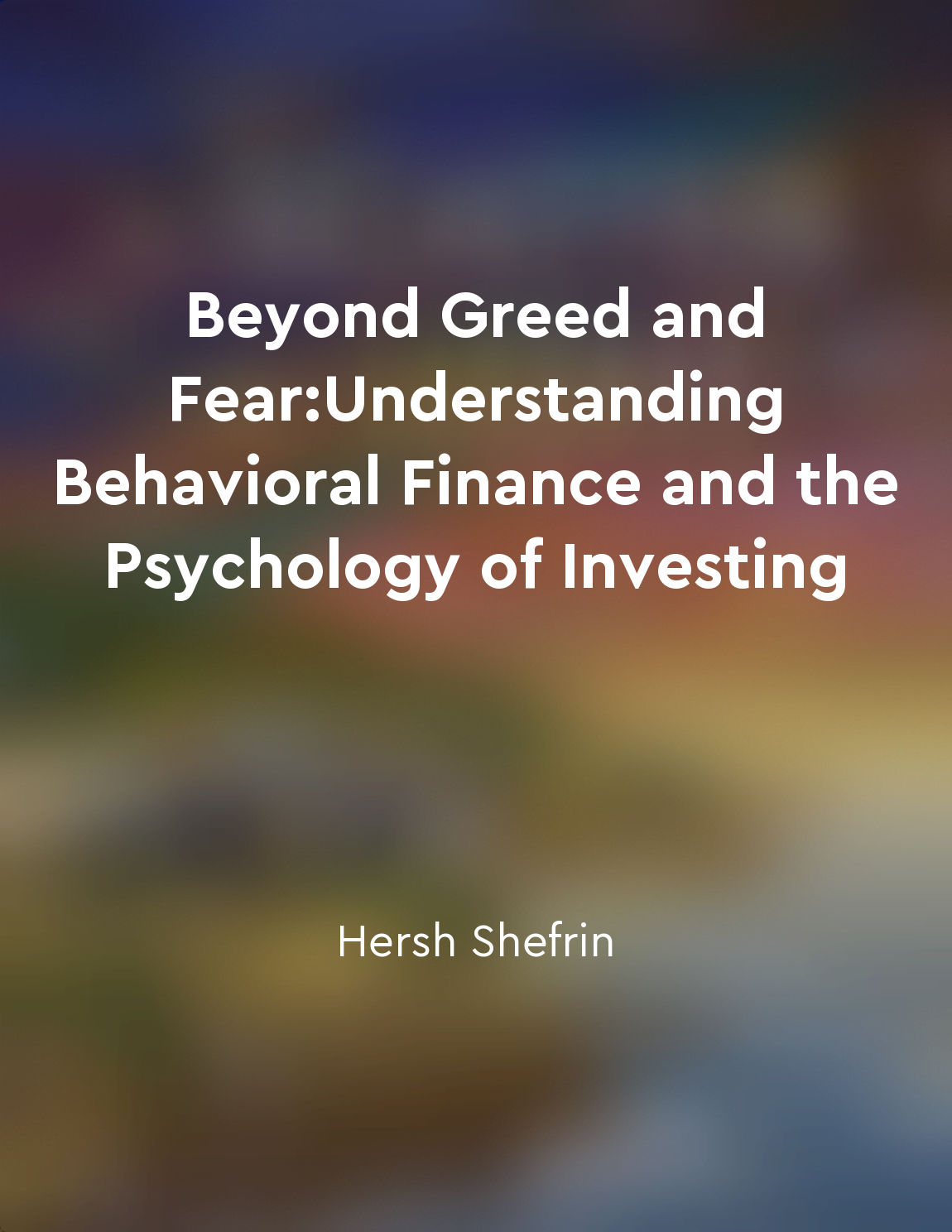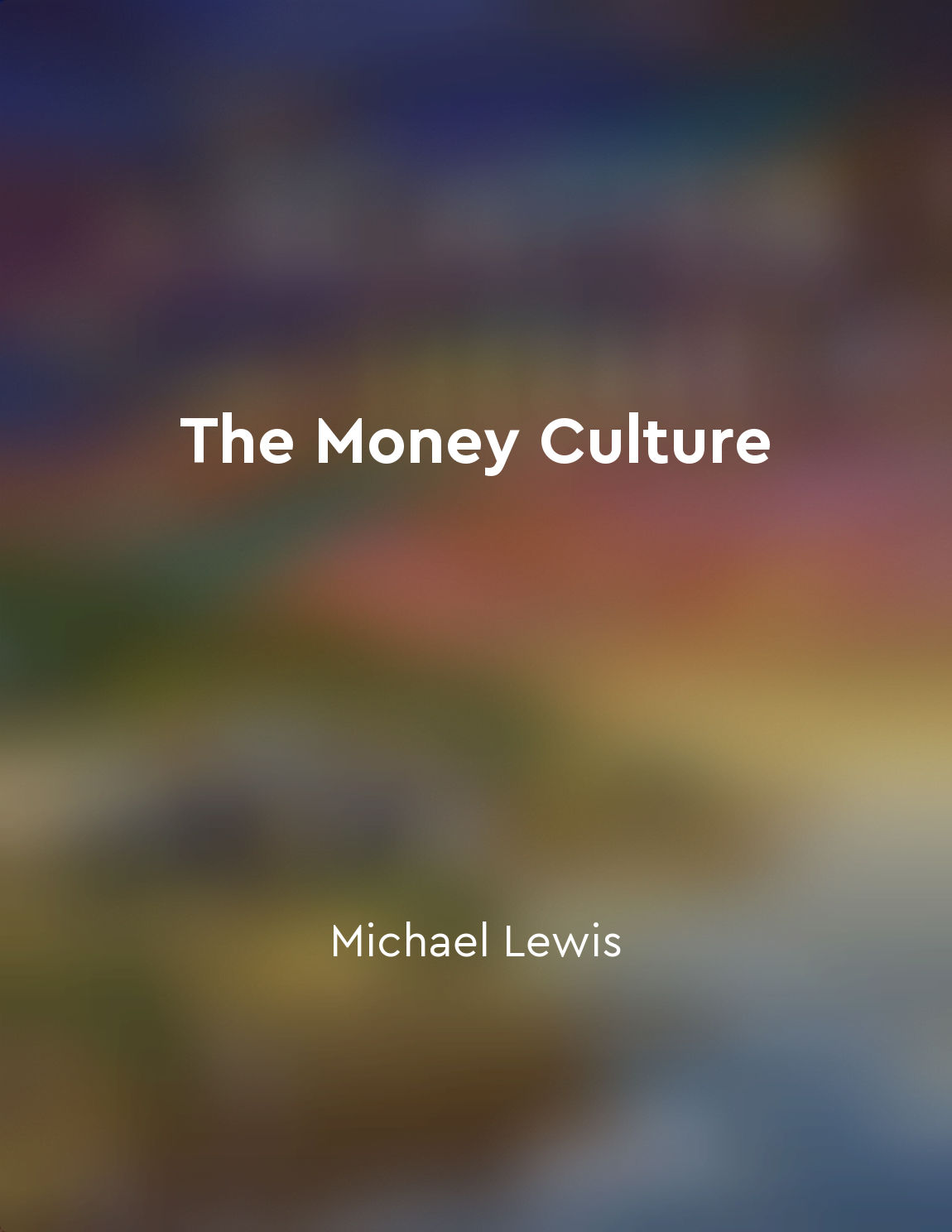Herding behavior is prevalent among investors from "summary" of Why Stock Markets Crash by Didier Sornette
Investors tend to follow the crowd, like a flock of sheep moving in the same direction. This herding behavior is not exclusive to stock markets; it is a common phenomenon in human behavior. People tend to feel more comfortable when they are doing what everyone else is doing, even if it may not be the most rational choice. This behavior can be particularly pronounced in times of uncertainty or stress, when individuals look to others for guidance on how to act. When a certain stock is performing well, investors tend to jump on the bandwagon and buy more of it, driving up its price even further. This creates a self-reinforcing cycle where the stock becomes overvalued due to the excessive demand. Similarly, when a stock is performing poorly, investors may panic and sell off their shares, causing the price to plummet even further. This herd mentality can exacerbate market volatility and lead to sudden and dramatic price swings. Herding behavior can also be fueled by cognitive biases, such as confirmation bias and social proof. Confirmation bias leads individuals to seek out information that confirms their preconceived beliefs, while social proof causes people to mimic the actions of others in order to fit in. These biases can cloud investors' judgment and cause them to make irrational decisions based on the actions of the herd. In order to avoid falling victim to herding behavior, investors must be aware of the psychological factors that drive it and make a conscious effort to resist the urge to follow the crowd. Doing thorough research, diversifying their portfolios, and maintaining a long-term perspective can help investors make more informed and rational decisions, rather than simply reacting to market trends. By understanding the pitfalls of herding behavior, investors can better navigate the unpredictable waters of the stock market and protect themselves from potential losses.Similar Posts

Emotion regulation strategies can help mitigate irrational behaviors
When it comes to investing, emotions can often cloud our judgment and lead to irrational behaviors. These irrational behaviors ...
Trust in the power of the market
The idea that underlies all our discussions is really a quite simple one. It is the concept of trust in the power of the market...
Stay informed about market trends
Staying informed about market trends is essential for successful investing. By keeping up to date with the latest developments ...

Seek opportunities for learning and personal growth
This concept is about continuously seeking opportunities to learn and grow personally, regardless of the circumstances. In time...
Money attitudes can change over time
As individuals move through different stages of life, their attitudes towards money are likely to shift. For example, a young a...
Dividends can provide steady income
The concept of receiving dividends from investments is an important one for investors seeking steady income. Dividends are paym...

Boom and bust cycles fueled by greed
The idea that financial markets are driven by cycles of extreme growth and collapse is not a new one. Throughout history, we ha...

Wealth disparity widens as elites profit
The rich get richer and the poor get poorer. This simple and brutal truth lies at the heart of our economy. In good times, the ...
Embracing uncertainty is part of being a contrarian investor
Contrarian investors understand that uncertainty is an inherent part of the investing process. Instead of being intimidated by ...
Confirmation bias may lead to selective attention
Confirmation bias, a common phenomenon in decision-making, can have a significant impact on how individuals process information...
